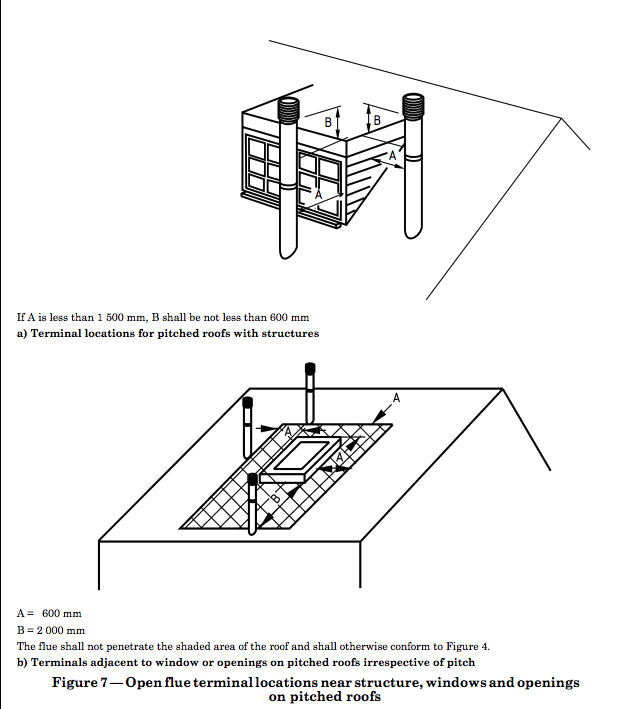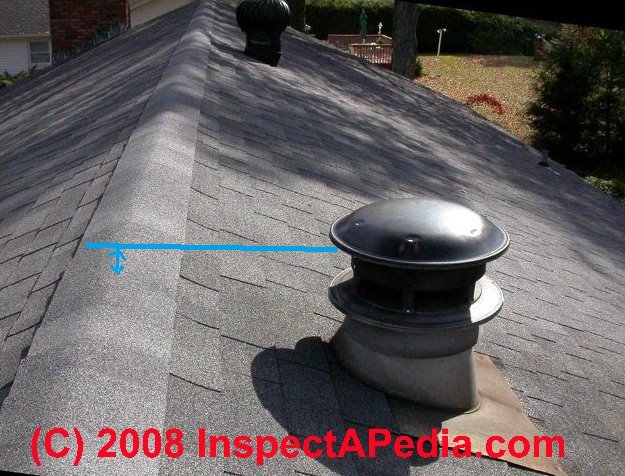Type b vents ceiling floor wall clearances b vent clearances to combustibles clearance distances for a b vent to combustible materials in floors walls ceilings attics roofs.
Proper clearance between chimney and roof.
Masonry chimney roof clearance requirements.
The plan on the left shows a code compliant chimney through floor or roof framing with a 2 air space between the masonry chimney walls and the combustible framing.
Chimneys should extend upwards.
Any portion of a masonry chimney located in the interior of the building or within the exterior wall of the building shall have a minimumair space clearance to combustibles of 2 inches 51 mm.
The 10 2 rule is the guideline for determining the amount of chimney required for proper operation and draw of your wood burning fireplace or stove.
Masonry chimneys must terminate.
Determine proper chimney height using the 10 2 rule.
This rule refers to the proper height of the chimney pipe above the roof.
The sketch at left shows the proper minimum chimney height and roof clearances for a masonry chimney.
This guideline has 3 main.
One of the most important aspects of the planning process is installing the proper amount of chimney pipe above the roof.
Nail the flashing in place right after you put down the tar paper or weather membrane.
And a rain cap protects the inside of the flue.
While some skylight manufacturers include flashing in their products sometimes roofing professionals have to create it or purchase it separately.
If you choose the latter method ensure the chimney pipe maintains proper clearances.
When passing through the roof you need to use a flashing that matches the roof pitch.
Open valleys have metal flashing to protect this critical area of the roof.
The edge of the roof has thin metal flashing that helps water drip off the roof without damaging the home or causing a leak.
Chimneys located entirely outside the exterior walls of the building including chimneys that pass through the soffit or cornice shall have a minimum air space clearance of 1 inch 25 4 mm.
A rain cap or deflector is required on all manufactured chimneys.
This will generally cause you fewer problems as a homeowner.
The proper name for the connection between a manufactured chimney flue and the.
The chimney must extend at least 3 above the highest point where it passes through a roof.
The difference between a chimney cap and.
A clearance gap of inches is required between a manufactured chimney and combustibles.
We discuss fire safety fire clearances and other gas appliance venting details for b vent chimneys.
If you ve been researching class a chimney pipes you ve probably heard of the 3 2 10 foot rule numerous times.
At least 3 feet above the highest point of contact with the roof structure the vertical green arrow in our sketch at left and.
This guideline is the same for exposed naked chimney s as it is for enclosed chimney s in a chase.
Masonry chimney clearances ibc code change proposals s232 12 and s237 12 by jim buckley chair.




























